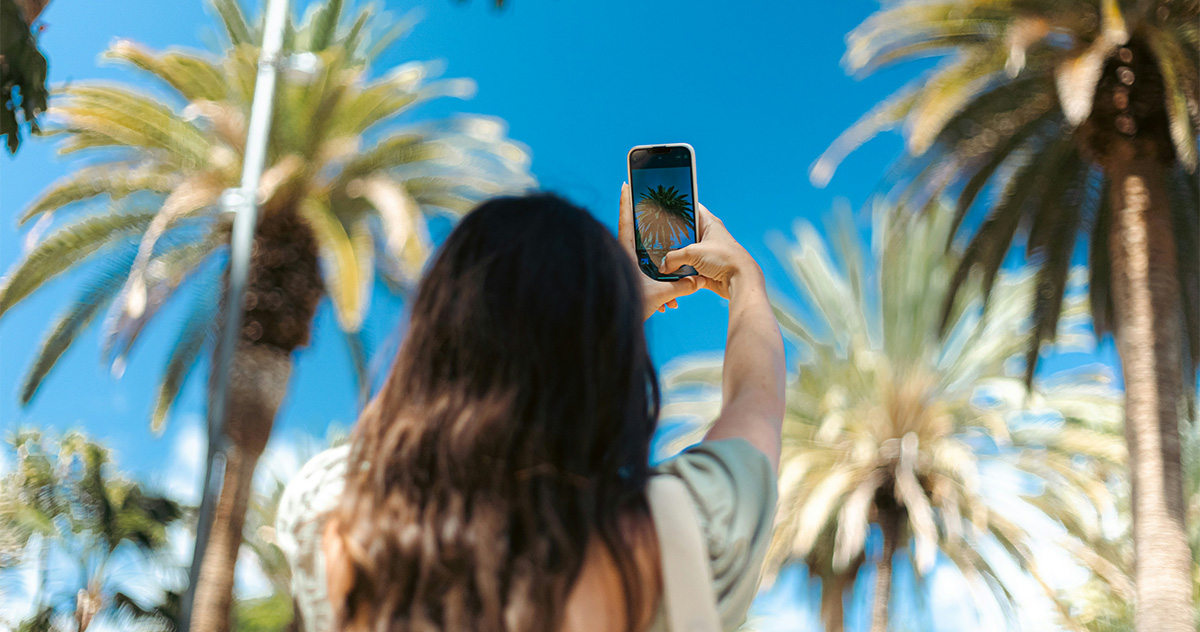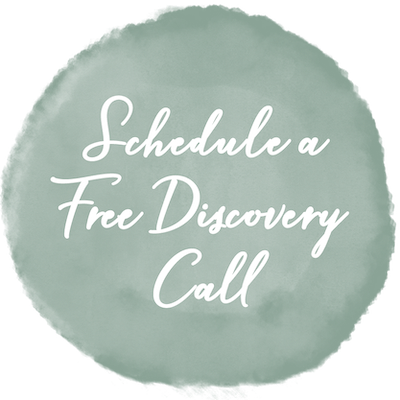One night while in recovery, I remember scrolling through social media looking at recovery accounts that I followed for inspiration and support. I remember seeing post after post of people sharing their wins - challenging fear foods with smiles, celebrating weight restoration milestones, and posting photos of full plates with captions about how free and joyful they felt.
However, I remember that instead of feeling inspired, I felt... small. Inadequate. And scared that I was doing recovery all wrong. Moreover, I find there’s something especially painful about feeling triggered by content that's supposed to help us heal.
This was not the first time this had happened for me, and from speaking with my clients over the past several years, I know I wasn't alone in this experience. The Washington Post also had an interesting perspective piece on this topic from 2022 that I remember coming across.
The Paradox of Recovery Content
What I've come to understand is that recovery content, even the most well-intentioned and carefully shared, can often become another source of comparison and self-judgment for our inner critics and perfectionistic parts to use against us. And this makes so much sense to me.
Many of us who develop eating disorders are already prone to comparison. We might have spent years measuring our worth against others - their bodies, their achievements, their apparent happiness and success. When we step into recovery, that tendency doesn't just disappear overnight, and recovery social media can inadvertently feed into this pattern.
We might find ourselves comparing:
- How fast others seem to be progressing versus our own pace
- How confident others appear versus how scared we still feel
- How easily others seem to challenge foods versus our ongoing struggles
- How positive and grateful others sound versus our own ambivalence
- How supported others seem versus how alone we might feel
And then, we often add another layer of judgment: feeling guilty or ashamed for having these comparative thoughts about people who seem to be doing well and who are trying to help and inspire others.

The Highlight Reel Effect
I think something important to remember is that social media, even recovery social media, is still a curated highlight reel. When someone posts about successfully challenging a fear food, we're usually not seeing the anxiety beforehand, the support they needed to get through it, or the difficult emotions they might have processed afterward.
When someone shares a milestone celebration, we're usually not seeing all the days that came before it - the setbacks and the moments of wanting to give up.
This isn't to diminish anyone's genuine progress or joy - I think that these posts can be beautiful and meaningful. But it's crucial to remember that they represent single moments in time, not someone's entire experience.
When Recovery Content Becomes Triggering
Sometimes, even our most well-intentioned engagement with recovery content can leave us feeling the opposite of how we hoped it would. You might notice this happening if:
- You find yourself feeling worse about your own progress after scrolling
- You start using others' recovery as a measuring stick for your own
- You feel pressure to be at a certain stage of recovery based on what you're seeing
- You begin forcing yourself to do things you're not ready for because others seem to be doing them easily
- You start questioning whether you're sick enough or trying hard enough
If any of this resonates, know that your feelings are completely valid and that you're not alone with them. And also know that this doesn't mean there's anything wrong with you or your recovery.
Creating Mindful Boundaries
The goal isn't necessarily to avoid all recovery content (unless you want to and this feels right for you) but rather to try to engage with it more mindfully and protectively.
Here are some strategies for this that I have found helpful:
Take Breaks: Remind yourself that it’s okay to step away from recovery content entirely for periods of time. Gently remind yourself that your recovery doesn't depend on staying constantly connected to these accounts.
Curate: Try to notice which accounts consistently leave you feeling worse about yourself, and consider unfollowing them - even if they're objectively "good" accounts. Gently remind yourself that your mental health is what matters most.
Set Time Limits: Consider limiting how much time you spend on recovery social media each day.
Practice Reality Checking: When you notice comparison thoughts coming up, try to remind yourself that you're seeing a snapshot, not a full story. Try asking yourself, "What would I tell a friend who was comparing their recovery to this post?"
Focus on Your Own Why: When you feel pulled into comparison, try to reconnect with your own reasons for recovery and your own goals, rather than goals that seem to be implied by what others are sharing.

The Permission to Go at Your Own Pace
The most important thing I want to share is this: our recoveries are not a race or a performance.
Our recoveries can be messy, non-linear, and full of setbacks and small victories that no one else sees. They can be private, quiet, and un-posted. It can look nothing like anyone else's recovery and still be absolutely valid and meaningful and the right journey for us.
Finding Authentic Support
When recovery content does feel supportive and helpful, that's wonderful. But I find that often the most helpful sources of support are more personal and individualized - our treatment teams, trusted friends or family, support groups, our own journaling practice, or anything that helps you feel genuinely seen and understood.
I find that often the most powerful recovery inspiration comes not from polished social media posts, but from authentic conversations with people who understand what we're going through, or from our own quiet inner wisdom that we're able to hear sometimes when the external content coming in fades away.
A Gentle Reminder
If you do find yourself feeling discouraged by recovery content, just know that this is such a common experience for those in recovery. Gently remind yourself that comparison is human. And that feeling triggered by content that's supposed to help is more common than you might think.
Your recovery journey is yours alone, and it doesn't need to look like anyone else's timeline, anyone else's milestones, or anyone else's social media presence.
Trust your own process. Trust your own pace. And remember that the most meaningful recovery often happens in the quiet moments that never make it to Instagram.
With so much compassion for your unique journey,

Reflection Questions:
- When you look at recovery content, how do you find you typically feel afterward? Inspired, discouraged, neutral, or something else?
- Are there particular types of recovery posts or accounts that tend to trigger comparison for you?
- What might it look like to engage with recovery content in a way that feels like it truly serves your healing, rather than detracts from it?
- How might you remind yourself that your recovery doesn't need to look like anyone else's?
Support For Your Journey
If you feel you could use more support on your eating disorder recovery journey I would love to connect with you. Contact me to book a free video discovery call so that we can explore if working together would be a good fit. I would love to hear from you.











